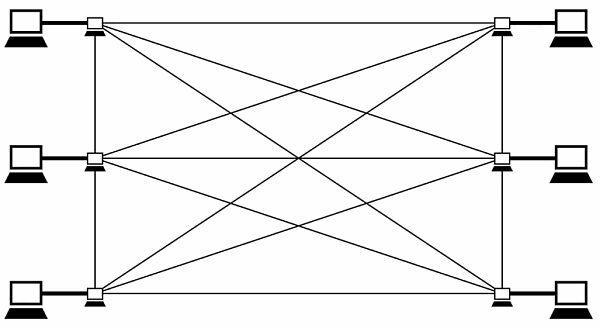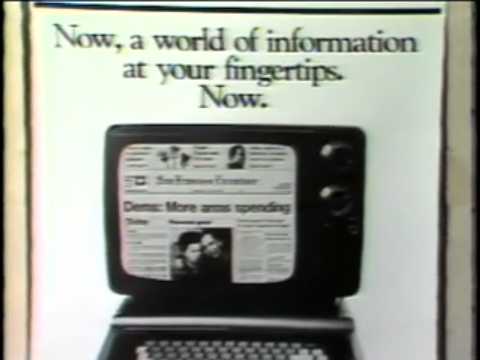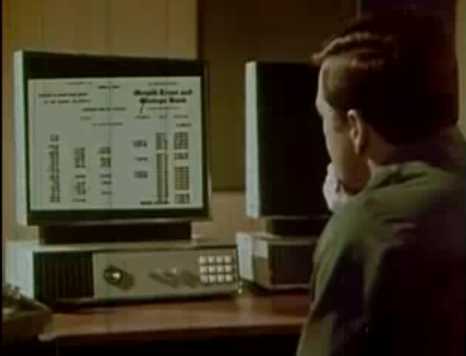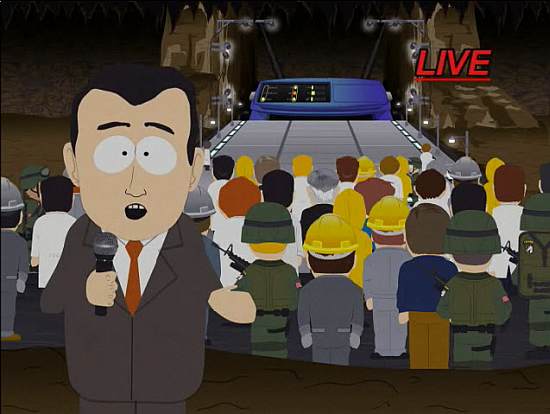The Big Internet Museum is exactly what it sounds like, a museum for the internet, of course on the internet. It’s quite interesting to read through. Many of the items on there, especially the later half, I can recall the day they launched or occurred. It’s amazing to think how these things have impacted society and how much we’ve experienced in just a few years.
Tag: Internet
The Ultimate Human Supercomputer
For most of my life there’s been a list known as the TOP500. The list of the fastest computers in the world. The fastest today is K computer, built by Fujitsu. We refer to them as “computers”, but in reality they are large rooms filled with servers that operate in coordination with one and other to solve a problem. They are individual nodes that work together.
I think this ranking is becoming increasingly irrelevant. Peak Tflops isn’t necessarily what matters anymore in terms of solving problems. I propose that the internet itself is the fastest and most powerful computer in terms of it’s ability to solve complicated problems. We haven’t figured out how to fully utilize it, we don’t even know it’s capacity or how to optimize it yet. But we know it has amazing potential already.
A photographer during the Vancouver riots (loosing in hockey is a real first world problem isn’t it?) photographed an anonymous kissing couple. In less than 24hrs they were identified. Someone requested help identifying the source of some amazing Nazi era photographs on a Tuesday morning. By Tuesday evening the photographer and the back story were coming into focus. There are no algorithms for these problems.
Things like tagging photos, status updates, tweets, wiki’s, and the ability to index, search, sort them in near real-time is at it’s infancy. We’ve barely got the technology to handle data at this magnitude, much less optimize, and realize it’s full potential. Already it can solve things that you can’t brute force using a supercomputer. At some point we’ll be able to question this “machine” and it will know who most likely would know and who shouldn’t be bothered even seeing the question. This isn’t artificial intelligence, this is computer network assisted human intelligence collaboration.
The internet likely won’t solve π to a trillion places anytime soon, if ever. We’ll leave that dull task to a “simplistic” supercomputer. But it’s important to not underestimate the power of the collective human brain. It’s already able to solve very obscure and complicated questions with ease and can be used without a degree in computer science. It’s only 2011. Just 10 years ago we couldn’t solve the above questions nearly as quickly, or perhaps at all if the person(s) with an answer wasn’t online. Imagine what 2021 will bring.
From Scientific American:
The Web as we know it, however, is being threatened in different ways. Some of its most successful inhabitants have begun to chip away at its principles. Large social-networking sites are walling off information posted by their users from the rest of the Web. Wireless Internet providers are being tempted to slow traffic to sites with which they have not made deals. Governments—totalitarian and democratic alike—are monitoring people’s online habits, endangering important human rights.
If we, the Web’s users, allow these and other trends to proceed unchecked, the Web could be broken into fragmented islands. We could lose the freedom to connect with whichever Web sites we want. The ill effects could extend to smartphones and pads, which are also portals to the extensive information that the Web provides.
– Tim Berners-Lee
The same web we credit with promoting freedom and taking down dictatorships is under attack itself. Will the web in 10 years still have the power to shift political power?
Tim Berners-Lee may know a thing or two about the web.
From Sarah Lacy’s TechCrunch post Conan O’Brien’s Love/Hate Relationship with the Internet is a very interesting insight from Coco:
O’Brien said the biggest thing that held him back from both writing and performing was a fear of being criticized because he’s incredibly sensitive. He punched a big hole in one of the biggest clichés in fame—that you just have to develop a thick skin. He says he’s still just as sensitive and criticism still hurts just as much. The secret is to just keep going anyway, because you will get criticized no matter how brilliant you are.
This is clearly something that’s gotten more pronounced in a Web age, but there may be a silver lining to that. In a time when every video, photo, blog post and Tweet can easily be trashed by others, people learn that criticism is inevitable early on.
The sensitivity to criticism I suspect is a motivator to O’Brien himself and I’m certain to others. It’s hard for it to not have an impact, even on the most jaded of individuals.
I think that has become true for anyone in any industry, not just night show hosts. To quote a movie title “We Live In Public” thanks largely to the Internet.
I learned long ago to take criticism and praise with a grain of salt. Neither are always genuine or accurate, especially on the Internet. Anonymity does make people more aggressive, but it also sometimes makes them more honest. Most people have a hard time giving criticism to you’re face even when asked to do so. It’s almost too easy when you can type it from a distance. Praise can have many false motivators that can often be hard to detect online.
It’s never “fun” to get a really nasty or critical blog comment, email, article, blog post written etc. about you or something you’ve done. This is especially true if you’ve dedicated a lot of time and effort. Regardless at some point you need to ask yourself: Is there any truth to this? Can I do something better? Once you’ve done that, it’s time to move on and plow forward. You won’t always be able to learn something, but that’s OK.
From my experience being a web developer, writing code that’s open source, and blogging means you’re going to get feedback, welcome or not. With certainty 100% of it will not be positive. Some will be negative, some will just be vile. Some however will be constructive. It’s to your advantage to use it.
Criticism and debate are a critical part of academia. Given programming’s still strong ties to academia, perhaps more so than many other industries may be why it seems so natural to accept for me and at least some of my peers. It’s like being graded in school. Or perhaps it’s because I started at about 14 or 15 years old as a developer. I got used to this sort of thing pretty early on during my formative teen years and it’s more natural for me. I guess I’m not really a true part of the trophy kids generation despite falling into the age group.
The History Of The Internet
This is an awesome animated documentary of the creation of the Internet. Way back in 1999 I did a paper on the same topic. Back then information on the creation of the Internet was not as plentiful as it is now. ISOC has a nice page and of course there is Wikipedia. I had to scrape it together from various sources. While Usenet documented it rather well, it wasn’t considered an acceptable resource for research purposes.
Bonus for being in HD.
The Internet Of 1981
Now here’s the “Internet” of 1981. This is not a concept, but a test of San Francisco Examiner content served electronically to personal computers. It’s however a misnomer to call it “Internet” instead of an online service via CompuServe. It wasn’t until about 1989 that CompuServe offered it’s subscribers limited access to the wider internet.
The San Francisco Examiner is still around though now free of charge and accessible on the Internet. They now use XHTML and jQuery and do offer images as well as text. What a difference a few 20+ years can make.
Internet Concept In 1969
Here’s a great video of an Internet like concept in 1969. Some particularly interesting things are the gender specific roles and the simplicity of it all. The hardware is almost comical considering how few buttons are on the machines to control the entire interface. There isn’t even a keyboard. Amazingly multiple displays are used, something that even in 2009 is somewhat of a luxury. It even has a precursor to email, nicknamed the “Home Post Office”.
It’s amazing how on a daily basis there’s a story about someone’s identity or data being stolen, personal info being misused, or just getting screwed via the Internet. Most of the time it’s due to a complete lack of standards regarding how people treat their digital property and identity. It’s the electronic equivalent of leaving your home and not locking the door. Anyone can come in and take what they want.
The FCC for years has been considering any connection greater than 200kbps to be broadband. For the past several years that’s been pretty misleading. In addition, they only collect downstream, not upstream. They also consider an entire zip code to have broadband if only 1 home can get it. That’s not very accurate. This makes the broadband situation in the US look better than it really is.
The definition of broadband in the US is now being redefined as 768kbps. They will now collect upstream data, and use census-track data. This is a major win since it will more accurately show how many people really do have broadband, and more importantly how many do not.
I personally disagree on the number and think it should be at least 2Mbps, but it’s a win regardless.
The pacific rim annihilates the United States when it comes to broadband. According to Akamai’s State Of The Internet for Q1 2008 high broadband (greater than 5Mbps) is where we really start to show our deficiencies. Here’s a look at broadband which they define as simply greater than 2Mbps:
| Rank | Country | % >2Mbps | Q4 07 Change |
|---|---|---|---|
| Global | 55% | -2.0% | |
| 1 | South Korea | 93% | -1.5% |
| 2 | Belgium | 90% | +1.5% |
| 3 | Switzerland | 89% | +0.5% |
| 4 | Hong Kong | 87% | -1.5% |
| 5 | Japan | 87% | +1.0% |
| 6 | Norway | 83% | -2.3% |
| 7 | Tunisia | 82% | +29% |
| 8 | Slovakia | 81% | +0.5% |
| 9 | Netherlands | 78% | -2.6% |
| 10 | Bahamas | 74% | -3.0% |
| … | … | … | … |
| 24 | United States | 62% | -2.8% |
Pretty pathetic considering our last Vice President invented the Internet 😉 . We are the largest in terms of sq miles, but when you consider the US population density, the bulk of our land is very sparsely populated. 80.8% of the US population lives in an urban setting [Warning: PDF].
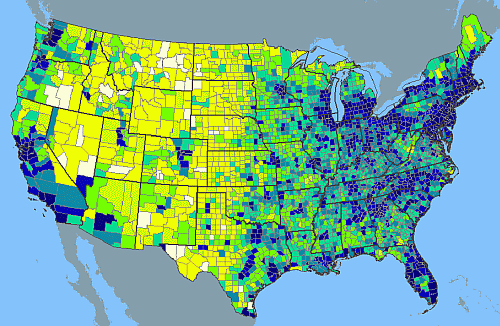
Japan by comparison has 66.0% of it’s population in an urban setting. Belgium has a surprising 91.5% which may account for it’s #2 position. Switzerland has 44.4% yet makes 3rd place threatening Belgium’s position.
I’m far from the first one to complain about the poor state of broadband. BusinessWeek and CNet both have relatively good discussions about the topic.
The future of media is clearly moving online as people demand to consume it on their schedule as they desire. Take a look at some of the statistics and it’s clearly a large industry. I suspect the lack of broadband infrastructure will be a real problem in the next several years as the rest of the world becomes very easy to distribute media to, and the US still faces challenges.
Solution? Highly debatable, but if so many other countries can do something about it, I suspect it’s achievable here in the US as well. I suspect that the taxes made from companies that do business on the internet from ecommerce to advertising would make this a decent investment for the US government to at least partially back. The more places companies make money, the more places the government does. That may be necessary as not all markets are profitable enough for telco’s to bother with. There have been various attempts to jumpstart this effort, but none to date have been successful.
It’s not only about just having access, it’s also the cost. As BusinessWeek points out in the article above, broadband in the US is not cheap.
Perhaps wireless will finally allow for competition and lower prices, at least that’s what everyone is hoping for. The question is if it will happen, if the technology will be there (wireless is generally high latency), and if it will be affordable for the common man.
I suspect in the next 4 years this will become and even bigger topic of discussion as some of the top ranking countries start to reach the point of saturation.
Southpark last week featured an internet outage as a plot. Pretty clever though I was disappointed to not see 1 reference to the series of tubes. I’m not sure if the reference to Linksys (Cisco) being responsible for the Internet being down was a complement or an insult. Though those Linksys boxes are infamous with just dying like that until you power cycle. Any other brand seems to have figured out how to not have that issue. Linux firmware on a Linksys also seems to remedy it. References to “Independence Day” and “Close Encounters of the Third Kind” were clever.
You can watch it online by clicking on the screen grab.
